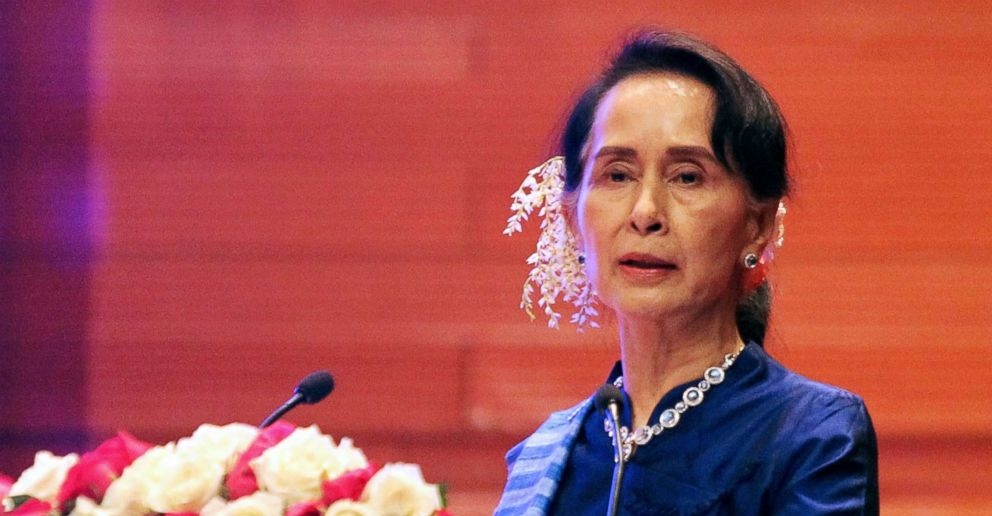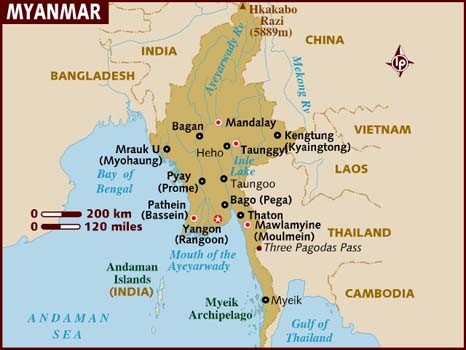Aung San Suu Kyi’s legacy
March 9, 2018 | Expert Insights

The United States Holocaust Memorial Museum has rescinded its prestigious Elie Wiesel award that it had conferred to Aung San Suu Kyi, the de facto leader in Myanmar.
Since 2017, over 600,000 Rohingya Muslims have fled the region amid reports of a genocide. The UN has stated that this was tantamount to “ethnic cleansing.” Suu Kyi has incurred considerable criticism as a result.
Background
Aung San Suu Kyi is the de facto leader of Myanmar. In 2015, she led her political party, the National League for Democracy (NLD), to a majority win in Myanmar's first openly contested election in 25 years. In the 1990 elections, NLD won 81% of the seats in Parliament, but the results were nullified, as the military refused to hand over power, resulting in an international outcry. She had, however, already been detained under house arrest before the elections. She remained under house arrest for almost 15 of the 21 years from 1989 to 2010, becoming one of the world's most prominent political prisoners. She was awarded the Nobel Peace Prize for her efforts to bring democracy to Myanmar.
However, despite being hailed as a universal symbol for fighting oppressive powers, she has been criticized for allowing oppression since coming tpower. She has incurred harsh criticism in particular regarding the government’s treatment of Rohingya Muslims. The Rohingya are an ethnic Muslim minority group from Myanmar’s western Rakhine state. Fresh bout of violence erupted in Myanmar on August 25th, 2017. Around 650,000 Rohingya Muslims fled the region as a direct result of it. This has triggered one of the largest refugee crisis ever witnessed in Asia. UN Secretary-General Antonio Guterres said that the violence in the region has "spiraled into the world's fastest-developing refugee emergency, a humanitarian and human rights nightmare." He added, “We've received bone-chilling accounts from those who fled, mainly women, children and the elderly.”

Analysis
The United States Holocaust Memorial Museum is the United States' official memorial to the Holocaust. In 2012, it honored Suu Kyi with the Elie Wiesel award for her advocacy for freedom and human rights. The museum has since rescinded the award amid growing criticism regarding the actions of the Myanmar government.
In an open letter the museum explained its actions noting, “We understand the difficult situation you must face in confronting decades of military misrule and violence in your country and that institution's still powerful constitutional role. However, the military's orchestration of the crimes against Rohingya and the severity of the atrocities in recent months demand that you use your moral authority to address this situation. While Myanmar has taken important first steps on the road to democracy, any transition that does not protect the country's most vulnerable communities will be deeply flawed.”
The museum has urged her to change course in Myanmar and address the violence in Rakhine. “As we have said in the past, we urge you to use your unique standing and your official role as State Counsellor and Foreign Minister to cooperate with international efforts, such as the Fact-Finding Mission mandated by the United Nations Human Rights Council and the work of the Special Rapporteur on the Situation of Human Rights in Myanmar, to establish the truth about the atrocities committed in Rakhine State and secure accountability for perpetrators.”
The letter also adds, “As a living memorial to the victims of the Holocaust, the Museum stands in solidarity with victims of genocide and atrocity crimes and attempts to do for victims today what was not done for the Jews of Europe. As Elie Wiesel said, “Neutrality helps the oppressor, never the victim. Silence encourages the tormenter, never the tormented.””
Meanwhile, Myanmar government has maintained that there is nothing resembling genocide taking place in Rakhine. National Security Adviser Thaung Tun said, “The vast majority of the Muslim community that was living in Rakhine remain. If it was a genocide, they would all be driven out." This was in response to UN human rights chief Zeid Ra'ad al-Hussein noting that he strongly suspected "acts of genocide" in Myanmar.
Zeid told the UN Human Rights Council that reports of bulldozing of alleged mass graves were a "deliberate attempt by the authorities to destroy evidence of potential international crimes, including possible crimes against humanity".
Many prominent personalities have even called for Suu Kyi’s Nobel Peace Prize to be rescinded.
Assessment
Our assessment is that despite being regarded the hope and savior of Myanmar’s democracy, Aung San Suu Kyi’s government has remained starkly silent over the criticism of the Rohingya crisis. Access to Rakhine has been tightly controlled by the military with journalists not allowed to report from there. A free and fair press is one of the main tenets of a healthy democracy and the detention of the reporters from Reuters indicates that Myanmar has still a long way to go before achieving that. Suu Kyi’s reputation and legacy as a champion for human rights and democracy has been tarnished.








Comments